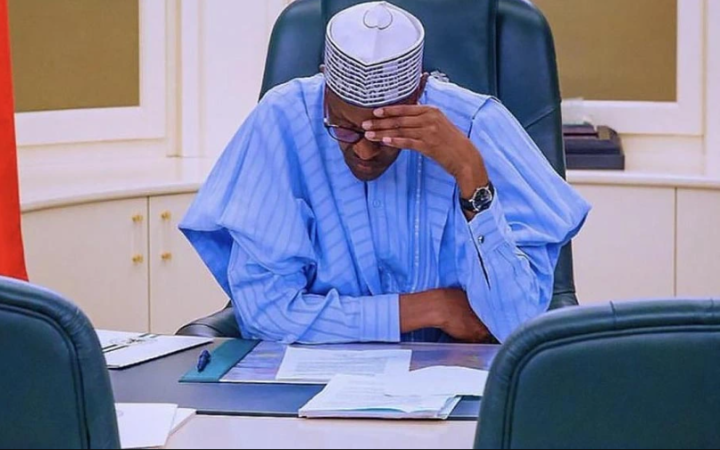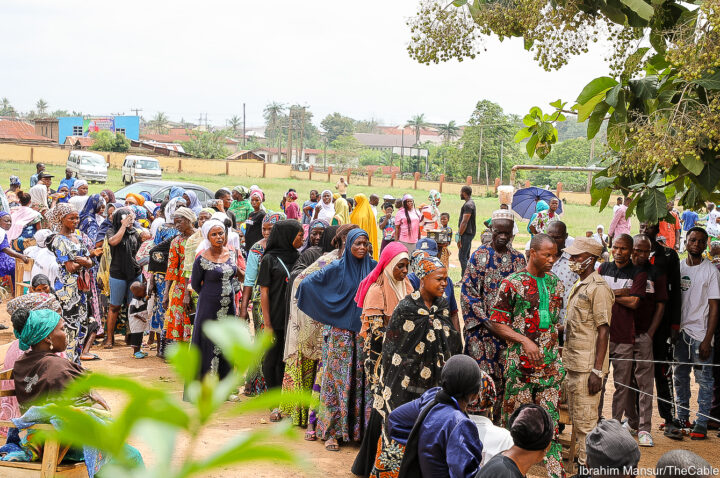Top functionaries of President Muhammadu Buhari’s administration minimise the weight of the insecurity that Nigerians now deal with and fiddle with the people’s intelligence. Although security is not his brief, the minister of works and housing, Babatunde Fashola, attempted during a recent interview on Channels Television to show that what Nigerians now experience is nothing near what happened in the years before 2015 when Buhari took office.
They make it sound like Nigerians suffer from amnesia and bring two things back to memory. Their most popular reference is that before this administration, “territory the size of Belgium” or “x number of local governments” were under Boko Haram’s control. They would then go ahead to argue that Boko Haram currently holds no single swathe of territory and so, Nigerians should be grateful.
The second common point, which Fashola also made on Sunday, is the 2010 Independence Day (October 1) bomb attack on Eagle Square, Abuja. Eight lives were lost in the attack, which happened at a national event to mark the country’s 50th independence anniversary. President Goodluck Jonathan and many other government functionaries attended. But I fail to see the point. These events and a plethora of other violent acts visited on Nigerians by Boko Haram insurgents during Jonathan’s presidency, are seven and 12 years old, respectively. They were also one of the reasons Nigerians gave Jonathan the boot in the 2015 elections and voted for Buhari, whom they believed had the experience to secure Nigeria. Now 302 days short of two terms, his government still places a buffet of excuses before a largely petrified citizenry.
Things are worse than they have ever been in Nigeria. Assuming, without conceding, that Boko Haram occupied as much territory as the minister of information, Lai Mohammed, always claims (given the recoveries the previous administration claimed to have made in the four weeks before the 2015 elections), the truth is that little has changed now. Terrorists still hold sway in many areas of today’s Nigeria, even if they have not hoisted flags (they have in one or two places). There are communities where terrorists reportedly impose levies on residents in Zamfara, Sokoto and other states in the north without any check.
Advertisement
121 days ago, terrorists attacked a Kaduna-bound train, killing many and abducting over a hundred people, of whom 43 still remain in captivity. Government and its agencies know where these Nigerians are kept, but they are not able to do anything about it. The criminals are so much in control that someone who claimed to have recently escaped from Kuje Prisons could reunite with his cohort without impediment. So, is any state in control of forests where these innocent people are held and tortured daily? This, by the way, isn’t the first time terrorists took hostages in Kaduna state. The story of the 140 students of Bethel Baptist High School, and 23 from Greenfield University are still fresh.
Zamfara is said to have over 30,000 bandits distributed between about 100 groups. One of their known leaders, Ado Aleiro, was recently turbaned as Sarkin Fulani of a community, just for the sake of “peace”. Although Governor Bello Matawalle has reversed the award, reports indicated that members of his cabinet including the commissioner for security and home affairs, Mamman Tsafe, and his security adviser, Abubakar Dauran, attended the event. Even now, Aleiro still walks the streets.
Things are even worse than that. The reality, in fact, is that Nigeria has become a huge enclave of terrorists. Unlike in 2015 when terrorism was largely restricted to one part, the entire country is now under siege. Killings, kidnappings, armed robberies, and ritual killings have become daily events. People are even scared to step out.
Advertisement
Then, the terrorists get bolder by the day, so, they can contemplate abducting the president and Kaduna state governor, Nasir el-Rufai. Of course, this threat comes as a mere bluff but it is one that the government cannot take lightly given the build-up over the months.
In August 2021, terrorists attacked the country’s elite military training facility, the Nigerian Defence Academy (NDA). They killed two officers and abducted one, whose release couldn’t be secured until a ransom was allegedly paid. Early this month, Buhari’s advance convoy was attacked on the way to Katsina, while just this week, officials of the 7th Guards Battalion were attacked by terrorists whose target was believed to be the Nigerian Law School, Bwari. Two lives were lost! Even if these terrorists never get to the president, the federal capital territory which seemed insulated is now under the grip of terrorists, with residents in perpetual fear.
Yet, the government had advanced knowledge of this eventuality. In April 2021, Niger state governor, Abubakar Sani Bello, warned that terrorists had hoisted their flags in Kaure, Shiroro local government area of the state. He said further: “…This is what I have been engaging the federal government on, unfortunately, it has now got to this level. If care is not taken, even Abuja is not safe”. 15 months later, his warning is the new reality.
So, what is the problem?
Advertisement
First, is the way Buhari reacts to these issues. The lethargy. His penchant to carry like nothing is at stake. Unlike the wise counsel that a stitch in time saves nine, he drags his feet while the problem festers, and by the time he decides to move, things would have gone beyond control. This is as true of security, as it is of the economy and even corruption, all areas he pledged to improve on. For instance, consider how long the killings in Benue state went on with Governor Samuel Ortom shouting himself hoarse without commensurate action from the federal government.
When Buhari reacts, however, he misses the most important points. Where he does not fold his arms and watch one group unleash terror on another unabatedly, his default response is the deployment of state forces on citizens who, probably, only desire a listening leader. Right from the Shiite incident in the early part of his administration to the deployment of military forces to every other part of the country to quench separatists’ agitations and petty crimes, Buhari has succeeded in suppressing the culture of legitimate agitation, and unwittingly encouraged the emergence of violent revolt from citizens who feel a pervasive sense of injustice.
When the government curtails the capacity of people to express themselves, it pushes them underground and engenders guerrilla tactics that it can’t cope with. Ironic as it may sound, many of these terrorists will attribute their rebellion to the government’s refusal to listen. Then you have poverty, ignorance and lack of education, youth unemployment as well as the mismanagement of the diversity of Nigerians also contributing to the level of insecurity in the country. Just as do the unbridled access to psychotropic substances, small arms and light weapons and permeable borders where anything and everything can happen for money.
With more than half of the country’s population poor and something between 13 million and 15 million children out of school, and this administration’s nonchalance towards the rate of population growth, only a miracle can make Nigeria different from its current state. Buhari, like many Nigerians, cannot wait for the end of his administration in May 2023, but quite a lot, one way or the other, can still go wrong between now and then.
Advertisement
Meanwhile, the president and his people can wake up from denial and, intentionally adopt a multi-dimensional approach that counters terrorism through force, but also prioritises economic development and humanitarian support before the country goes burst on us.
Adedokun tweets @niranadedokun
Advertisement
Views expressed by contributors are strictly personal and not of TheCable.
Add a comment







